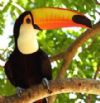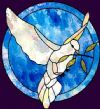|
ESL Forum:
Techniques and methods
in Language Teaching
Games, activities
and teaching ideas
Grammar and
Linguistics
Teaching material
Concerning
worksheets
Concerning
powerpoints
Concerning online
exercises
Make suggestions,
report errors
Ask for help
Message board
|
ESL forum >
Ask for help > Articles
Articles
|

Anna P

|
Articles
|
|
Articles are not easy as they seem to be. I am having a hard time preparing an OE - I �ve been working on it since Saturday! First, I �m using size 3 for the questions but in the preview the letters are huge. I deleted, wrote again and still the same problem. I �ll keep trying to solve this problem.
My question for you is a sentence I made because one of my professors had a house near Lake Placid.
Dr. Smith has a house in the Adirondacks near no article Lake Placid.
However, in the examples, I wrote that we use THE before geographical nouns - rivers, mountains... so, why no article before Lake Placid? The easier way is to remove the sentence but I �m curious.
|
9 May 2011
|
|
|
|

ueslteacher

|
|
Just a rule: Lake Baikal / Baikal, Lake Ontario, Lake Michigan, Crater Lake, Utah Lake, Lake Geneva, Great Pond. But: the Great Salt Lake, the Great Lakes (5 lakes). Sophia |
9 May 2011
|
|
|

sirhaj

|
Lake Placid appears to be a proper noun already ( it has a specific name), thus we do not use "the" since the nature of the noun is already specific. "The"for "the tallest mountain", "the blue lake" and "the well-known city", we do not use "the" when we refer to something in a specific manner, such as " Mount Everest", " Ontario Lake" and " New York City", if place the word "the" before this noun, they appear to be weird.
Sincerely,
Sirhajwan
|
10 May 2011
|
|
|

Anna P

|
 Thanks a lot, Sophia and Sirhajwan! Thanks a lot, Sophia and Sirhajwan!
Articles are really more complicated than I though. We use THE for mountain ranges, but not for mountains; for rivers but not for lakes... not counting the exceptions!
Now I can use Dr. Smith �s lovely cabin in my sentence. I went there in the Fall when the leaves were all shades of gold, red, orange and brown. So beautiful!
Thanks again,
Anna |
10 May 2011
|
|
|

franzjosefaut

|
|
Hey Anna. Here �s the scoop:
Rules are good - knowledge is better.
Neither rules nor explanations make sense when the whole topic is missed.
Your sentence:
�Dr. Smith has a house in the Adirondacks near no article Lake Placid. �
Clearly no article with Lake Placid, like Sirhajwan already explained.
However, the situation is different with �Adirondacks �.
If Adirondacks is a town or village or such, there is no article, just like with Lake Placid.
The preposition �near � leaves another option: �Adirondacks � could be plural and thus describe an area near Lake Placid like �The Black Hills � in South Dakota or �The Everglades in Florida �.
I have been all over the USA, but never managed to visit (the?) Adirondacks.
I googled �Adirondacks � and found out that �Adirondack � is one of the oldest state parks in the USA. I can �t find conclusive answers, whether it can be referred to as �Andirondacks �, but that would be the only option to use �the Andirondacks �.
Using the correct name for the park �Andirondack � does not use a �the �.
Example: I have a cabin in Yellowstone National Park �.
Back to your sentence:
If Dr. Smith has a house in the Andirondacks, I presume it is not in the state park, and thus, �Andirondacks � probably referrs to a mountain range, like �the Rockies �. It is, after all, part of the famous �Appalachians!
Hope this is helpful:
Greetings, Franz
I am not on eslprintables too often.
|
10 May 2011
|
|
|

franzjosefaut

|
|
One more thing:
Lake Placid can have two meanings: the lake or the city/town.
Either way, they are proper nouns.
Greetings, once more,
Franz
|
10 May 2011
|
|
|

Jayho

|
|
Hi Anna
I refer my students to here when it comes to tricky articles. Maybe it is of use to you.
Cheers
Jayho |
10 May 2011
|
|
|